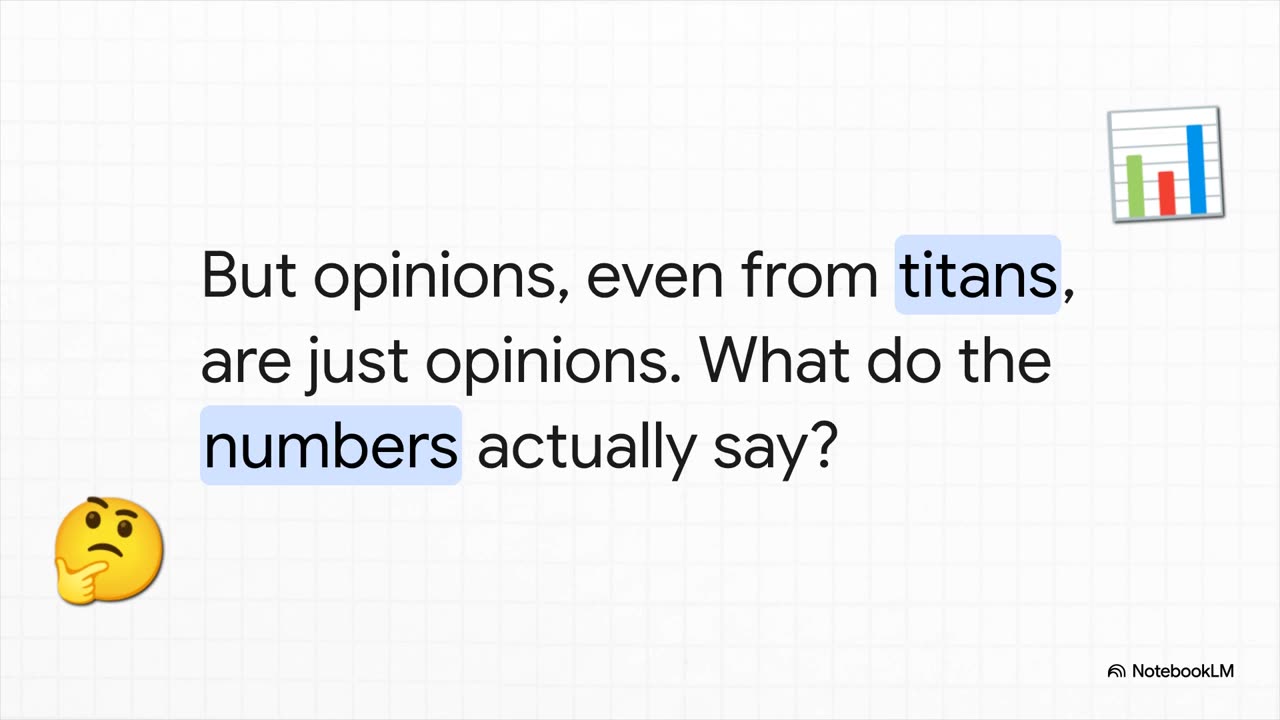Premium Only Content

Bitcoin Rat Poison Versus Berkshire Returns
The video focuses on Munger's strong criticism of Bitcoin, which he called “rat poison” destined to “go to zero,” and compares these statements with the financial results achieved.
The author points out that, despite the negative opinions of well-known experts, the data and figures demonstrate the superiority of Bitcoin's growth in a much shorter time than the fortune built by Warren Buffett over seventy years.
Charlie Munger, renowned investor and vice president of Berkshire Hathaway, led by Warren Buffett, has been one of the harshest and most influential critics of Bitcoin and cryptocurrencies. His opinions, expressed on numerous occasions, described the digital asset in extremely negative terms.
His main criticisms were based on:
High Volatility: the instability of Bitcoin's price was an unacceptable risk factor.
Absence of Regulatory Frameworks: At the time of his strongest statements, the lack of clear regulation was seen as a fundamental weakness.
Intrinsic Nature of the Asset: Munger believed Bitcoin had no real value and was contrary to the principles of a civilized society.
His most emblematic statements include definitions of Bitcoin as:
“The most expensive rat poison.”
“Disgusting and contrary to the interests of civilization”: A moral and ethical condemnation of the entire sector.
“Stupid and very likely to go to zero”: A clear and unequivocal prediction about its future.
These positions, coming from a figure of enormous credibility in the investment world, have shaped the perception of Bitcoin in large sectors of traditional finance for years.
The central point of the analysis is the empirical verification of Munger's predictions through market data. Taking the date of one of his famous interviews, February 13, 2022, as a reference point, it is possible to compare Bitcoin's performance with that of the fund he himself managed, Berkshire Hathaway.
During the reference period, Bitcoin recorded a performance of +175%.
while the Berkshire Hathaway fund achieved growth of +38%.
Bitcoin's performance was more than four times higher than that of Munger and Buffett's fund, effectively disproving the prediction that its value would be reduced to zero.
Contrary to Munger's concerns about the lack of regulation, the regulatory environment and institutional acceptance of Bitcoin have undergone a profound transformation since 2023.
Several countries have begun to implement legal frameworks for cryptocurrencies, providing greater clarity for investors and operators.
A crucial turning point was the approval by US regulators (the Fed is mentioned in the text) of Bitcoin-dedicated Exchange-Traded Funds (ETFs). This allowed access to the asset to a much wider audience of institutional and retail investors through traditional financial instruments.
BlackRock's entry: Larry Fink, CEO of BlackRock, publicly admitted that he had changed his previously negative opinion of Bitcoin. As a result, BlackRock applied for and obtained authorization for its own Bitcoin ETF. Since its launch on February 9, 2024, this instrument has raised nearly $89 billion, reflecting enormous institutional interest.
These developments not only contradict arguments about the lack of regulation, but also signal a process of maturation and integration of Bitcoin into the global financial system.
The analysis also compares the speed of value creation between traditional finance and the new paradigm represented by Bitcoin.
It took Warren Buffett over 70 years, starting with an initial capital of $5,000 at the age of 17, to build his immense fortune.
Bitcoin: listed on January 3, 2009, starting at a value of a few cents, it has reached a market capitalization of approximately $70 billion in less than 17 years.
The fundamental difference highlighted is time. Bitcoin has compressed a value creation process that took almost an entire lifetime in traditional finance into less than two decades.
The central thesis of the analysis is that, while the opinions of legendary investors such as Charlie Munger are respectable, they must always be compared with hard data and market results. The numbers show that the catastrophic predictions about Bitcoin have not come true; on the contrary, the asset has shown remarkable growth and resilience.
Bitcoin is defined as an undeniable reality and an extremely interesting concept of money, whose ownership is held directly by the individual holder. The future projection is that Bitcoin will continue to grow until it reaches prices disproportionate to current ones, going beyond what traditional financial thinking can conceive.
-
 LIVE
LIVE
FyrBorne
11 hours ago🔴Warzone M&K Sniping: Modern Warfare Weapons That Still Cook in 2025
2,538 watching -
 17:40
17:40
Actual Justice Warrior
1 day agoBlack Mob ATTACKS Conservatives On Campus
87K184 -
 2:04:41
2:04:41
MG Show
1 day agoJames 'Dirty Cop' Comey Indicted; A Plan to Starve the American People
74.1K22 -
 9:11
9:11
MattMorseTV
20 hours ago $25.33 earnedVance just DROPPED the HAMMER.
157K90 -
 10:16
10:16
GritsGG
20 hours agoBEST Controller Settings for Warzone! Rank 1 Player's Settings!
53.7K4 -
 2:13:30
2:13:30
Side Scrollers Podcast
1 day agoUK Introduces MANDATORY Digital ID + Dallas ICE Shooting BLAMED on Gaming + More | Side Scrollers
173K27 -
 10:34
10:34
The Pascal Show
19 hours ago $9.22 earnedFOOTAGE REVEALED! Images Of Celeste Rivas Exposed Before Her Disappearance From Home Running To D4vd
64.7K3 -
 LIVE
LIVE
Lofi Girl
2 years agoSynthwave Radio 🌌 - beats to chill/game to
245 watching -
 4:23:47
4:23:47
MissesMaam
15 hours ago*Spicy* Friend Friday with Mally_Mouse and Friends!! 💚✨
344K18 -
 2:05:09
2:05:09
TimcastIRL
16 hours agoRIOTS Leftist ATTACK ICE, Tear Gas Deployed, Feds Ordered To IGNORE CA Law, CIVIL WAR! | Timcast IRL
386K353